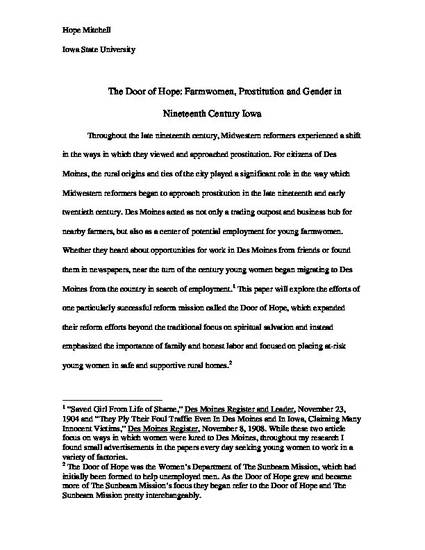
Throughout the late nineteenth century, Midwestern reformers experienced a shift in the ways in which they viewed and approached prostitution. For citizens of Des Moines, the rural origins and ties of the city played a significant role in the way which Midwestern reformers began to approach prostitution in the late nineteenth and early twentieth century. Des Moines acted as not only a trading outpost and business hub for nearby farmers, but also as a center of potential employment for young farmwomen. Whether they heard about opportunities for work in Des Moines from friends or found them in newspapers, near the turn of the century young women began migrating to Des Moines from the country in search of employment.1 This paper will explore the efforts of one particularly successful reform mission called the Door of Hope, which expanded their reform efforts beyond the traditional focus on spiritual salvation and instead emphasized the importance of family and honest labor and focused on placing at-risk young women in safe and supportive rural homes.
Available at: http://works.bepress.com/hope_mitchell/2/

This is a conference presentation from the 2015 Agricultural History Society Annual Meeting. Posted with permission.